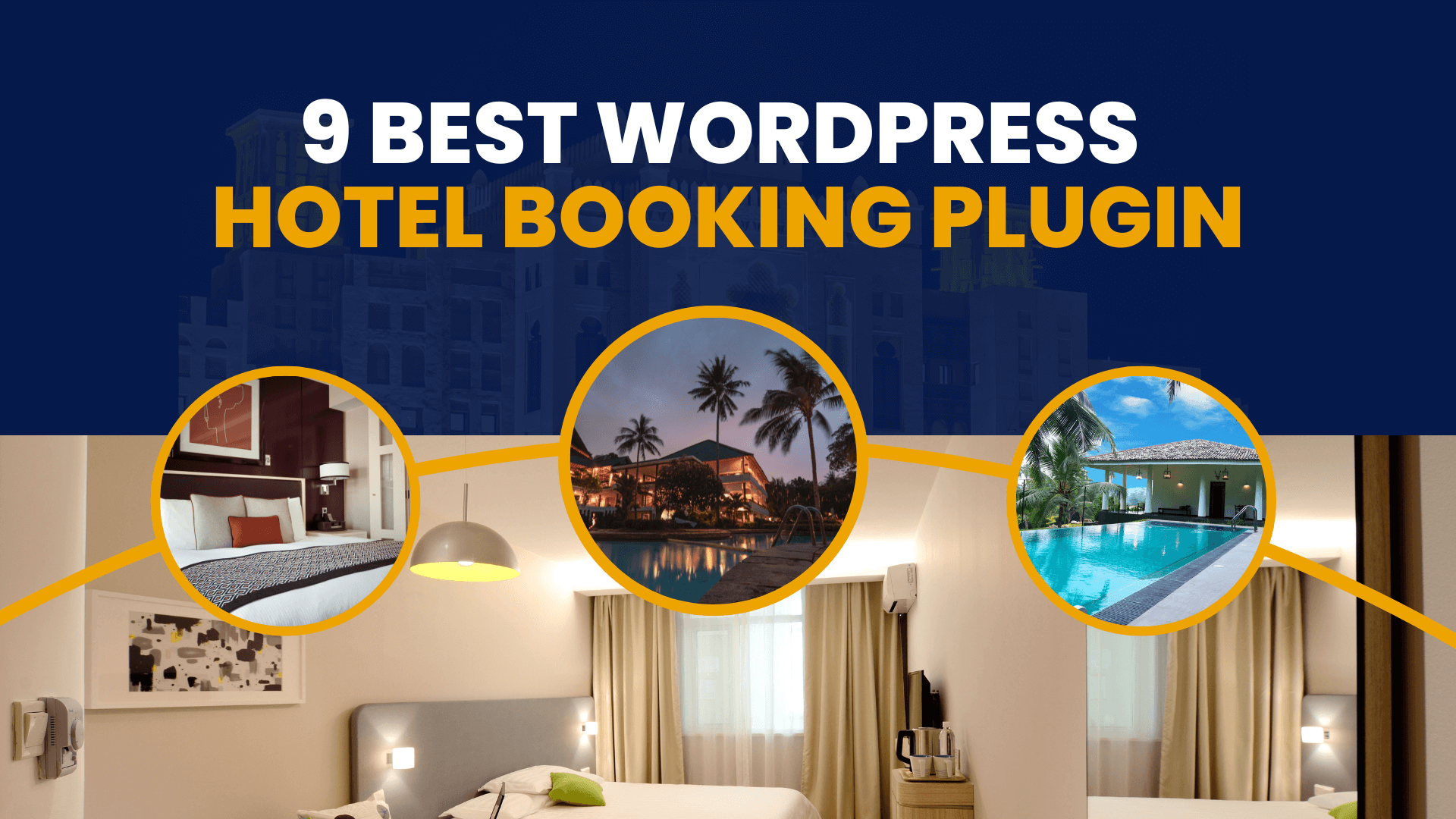[Wp Hotelier: The Complete Guide To Enhancing Your Hotel Website’s Seo]

Executive Summary

In the competitive landscape of online travel, a strong SEO strategy is crucial for any hotel website. This guide will equip you with the essential knowledge and practical techniques to optimize your website for search engines and attract more potential guests. We’ll explore key aspects like keyword research, content optimization, technical SEO, local SEO, and link building to help you elevate your hotel’s online presence and drive higher conversions.

Introduction
In today’s digital age, travelers are increasingly turning to search engines like Google to find their perfect accommodation. To stand out in the crowded online travel market, hotels need to optimize their websites for search engine optimization (SEO). A well-executed SEO strategy can significantly enhance your website’s visibility, attract more potential guests, and ultimately drive more bookings.
Frequently Asked Questions (FAQs)
Q: Why is SEO important for my hotel website?
A: SEO is crucial because it ensures that your website appears prominently in search engine results pages (SERPs) when potential guests search for hotels like yours. This increased visibility translates to more traffic, more leads, and ultimately, more bookings.
Q: How long does it take to see results from SEO?
A: SEO is a long-term strategy that requires ongoing effort. While you may see some initial results within a few months, it typically takes 6-12 months to achieve significant improvements in organic search traffic.
Q: Do I need to hire an SEO expert to optimize my hotel website?
A: While hiring an SEO expert can be beneficial, many of the core SEO principles can be implemented in-house. However, if you lack the time, expertise, or resources, engaging a professional can be a worthwhile investment.
Keyword Research
Keyword research is the cornerstone of a successful SEO strategy. It involves identifying the terms and phrases that people use when searching for hotels online. By understanding these keywords, you can tailor your website content and meta data to match search queries and attract relevant traffic.
- Identify your target audience: Define the demographics, travel preferences, and search behavior of your ideal guests.
- Use keyword research tools: Tools like Google Keyword Planner, SEMrush, and Ahrefs can help you identify high-volume, relevant keywords.
- Focus on long-tail keywords: These are longer, more specific phrases that target niche audiences and can drive highly qualified traffic.
- Prioritize location-based keywords: Include your city, region, and specific landmarks in your keywords to target local searches.
On-Page Optimization
On-page optimization focuses on optimizing the content and structure of your hotel website to improve its ranking in SERPs. It encompasses a range of techniques to enhance the user experience and signal to search engines the relevance and quality of your website.
- Title tags and meta descriptions: Craft compelling, keyword-rich titles and descriptions that accurately reflect your content and entice users to click.
- Heading tags (H1-H6): Structure your content using heading tags to improve readability and signal the importance of different sections to search engines.
- Image optimization: Optimize your images with descriptive file names, alt text, and compressed file sizes to improve loading times and accessibility.
- Internal linking: Strategically link internal pages within your website to improve user navigation and signal the importance of different pages to search engines.
Technical SEO
Technical SEO addresses the technical aspects of your website that can impact its crawlability, indexability, and overall performance in search engines. A well-structured and optimized website ensures that search engines can easily access, understand, and index your content.
- Website speed optimization: Ensure fast loading times by optimizing images, minifying code, and leveraging caching mechanisms.
- Mobile-friendliness: Create a responsive design that adapts to different screen sizes and provides a seamless user experience on mobile devices.
- HTTPS security: Implement an SSL certificate to encrypt website traffic and provide a secure browsing experience for users.
- XML sitemap: Create and submit an XML sitemap to search engines to facilitate the indexing of all your website’s pages.
Local SEO
Local SEO is essential for hotels as it targets searches by users looking for accommodation in specific geographical locations. By optimizing your website for local search queries, you can attract potential guests who are actively searching for hotels in your area.
- Google My Business (GMB) profile: Claim and optimize your GMB profile with accurate business information, high-quality photos, and customer reviews.
- Local citations: List your business information on reputable online directories like Yelp, TripAdvisor, and Yellow Pages.
- Geo-targeting keywords: Include your city, region, and specific landmarks in your website content and meta data to target local searches.
- Hyperlocal content: Create blog posts, articles, or guides that focus on local attractions, events, and experiences relevant to your hotel’s location.
Link Building
Link building involves acquiring backlinks from other websites to your hotel website. These backlinks act as votes of confidence from reputable sources, which can significantly improve your website’s authority and ranking in SERPs.
- Guest blogging: Write guest posts for relevant travel blogs or websites and include links back to your hotel website.
- Directory submissions: Submit your hotel’s information to relevant online directories, such as hotel booking websites and tourism organizations.
- Social media engagement: Share high-quality content on social media platforms and encourage user engagement to generate natural backlinks.
- Collaborations and partnerships: Partner with local businesses, attractions, or travel agencies to cross-promote each other and exchange backlinks.
Conclusion
Implementing a comprehensive SEO strategy for your hotel website is no longer an option but a necessity in today’s digital world. By understanding the principles of keyword research, on-page optimization, technical SEO, local SEO, and link building, you can significantly enhance your website’s visibility, attract more potential guests, and boost your online booking conversions. Remember that SEO is a continuous process that requires ongoing monitoring, analysis, and adjustments to stay ahead of the competition.
Keywords
- SEO
- Hotel website optimization
- Keyword research
- On-page optimization
- Technical SEO
- Local SEO
- Link building
This article is a bit too basic for me. I'm looking for more advanced SEO tips that can really help me stand out from the competition.
This article was super helpful! I've been struggling with my hotel's SEO for ages, and this guide gave me some really great tips. I'm definitely going to implement some of these strategies on my website.
I'm not sure I understand this whole 'schema markup' thing. Can someone explain it to me in simpler terms?
I'm not sure why everyone is so obsessed with SEO. It's just a bunch of technical jargon that nobody understands.
So, you're telling me that I should use images with alt text? Wow, groundbreaking! I never thought of that before.
This article is so boring, I almost fell asleep reading it. I guess I'll just stick to my old SEO strategies.
I think the author is forgetting about the importance of social media in SEO. Social media is a huge driver of traffic, and you can't ignore it.
I'm not sure this article is really all that helpful. I've tried a lot of these things before, and I haven't seen much improvement in my rankings. I think SEO is just too complicated for me.
I've been working on my website's SEO for months, and I haven't seen any results. Maybe I'm doing something wrong?
It's funny how people still think that SEO is a magic bullet for success. It takes a lot of hard work and dedication to see results.
I love how this article emphasizes the importance of mobile optimization. It's so crucial for hotels to have a website that looks great on all devices.
It's important to remember that SEO is an ongoing process. You need to constantly be updating your website and content to stay ahead of the competition. This article is a great starting point, but it's just the beginning.
The author claims that using long-tail keywords is important, but I'm not so sure. I've found that short-tail keywords are actually more effective for my hotel's website. Maybe it depends on your industry.
This article is so insightful! I'm going to go through each section and make sure my website is up to par. I'm confident that this will boost my rankings.